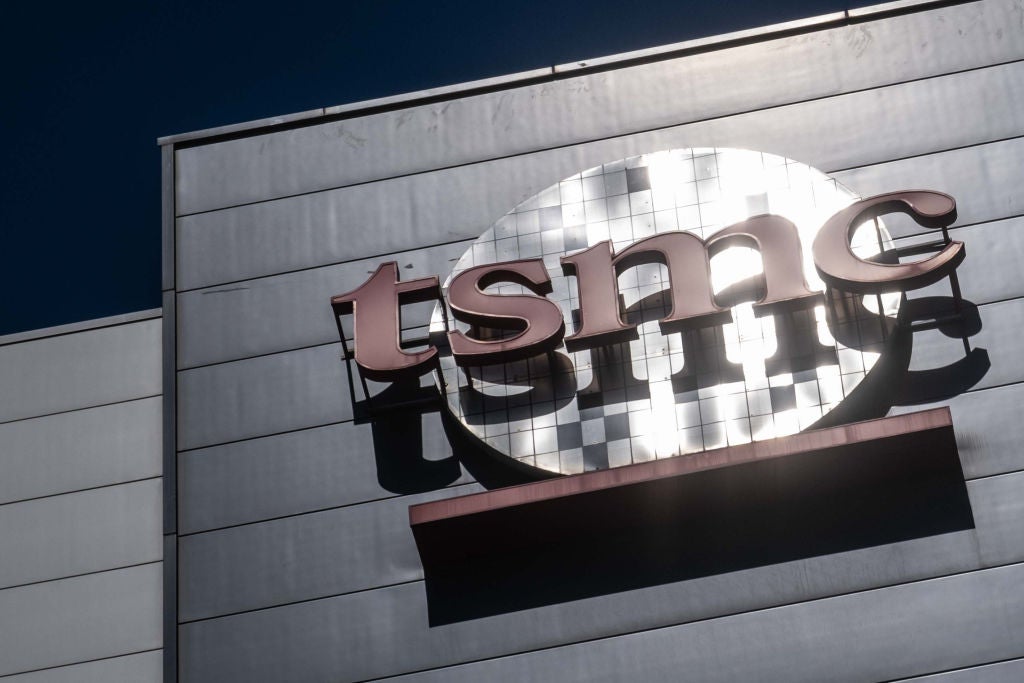
Taiwan Semiconductor Company (TSMC) is arguably the world’s most popular company among policymakers. Every global location, bar none, wants to attract the economic development a TSMC semiconductor fab would bring, so much so that the Biden administration’s US CHIPS Act, introduced in August 2022, might well have been a love letter written directly from the US government to TSMC – and the seduction is complete. In the past two years, the world’s biggest maker of advanced semiconductors has made investments totalling $40bn in the US. For TSMC this represents a much-needed expansion of its global footprint, and for the US it ensures advanced chip-making capacity on domestic soil for the medium to long term.
Against the backdrop of Taiwan’s growing economy of the past 60 years, TSMC has greatly prospered. The company was founded during this period, in 1987, by Chinese-born, Harvard-educated Morris Chang.
However, it was a global shortage of semiconductors, which came under the spotlight during the Covid-19 pandemic, that catapulted TSMC into being one of the world’s most important corporations. TSMC has a near monopoly on the manufacture of advanced semiconductor chips, which are critical in the development of emerging technologies. As the global space race for tech supremacy intensifies, semiconductors have become the rocket fuel.
TSMC’s near monopoly of the world’s manufacturing of advanced semiconductor chips has created a global dependency on Taiwan for the supply of these high-end chips. As global policymakers address this dependency on Taiwan, TSMC has become the beneficiary of overseas subsidies designed to attract the company to expand internationally. For TSMC this represents a much-needed opportunity to both increase its international footprint and locate operations closer to its global customer base. In particular, the US CHIPS Act, which provides $52bn in investment and subsidies to foreign chipmakers, has served as a draw.
In early December 2022, US President Joe Biden attended a ‘first tool in’ ceremony for TSMC’s new semiconductor manufacturing facility in north Phoenix, Arizona. TSMC acquired 456 hectares of land in 2020 and began construction of its new fab in April 2021, which is expected to be operational in 2024. The $12bn investment was Arizona’s largest-ever foreign direct investment (FDI) project. In December 2022, the company announced plans for a second fab on its existing site, taking the total investment in Arizona to $40bn. It is expected that TSMC will manufacture five-nanometre chips in its first facility and three-nanometre chips in its second Arizona facility, expected to be operational by 2026. TSMC’s investment represents one of the largest FDI projects in US history.
How has TSMC expanded its global footprint?
However, TSMC must continue its overseas expansion to stay competitive against increasing competition, according to GlobalData research. TSMC's competitors have all substantially increased investments in establishing new foundry capacities worldwide and this intense competition could affect the company’s business operations and its profit margin. TSMC competes internationally and domestically with companies including X-FAB Semiconductor Foundries, Global Foundries, Semiconductor Manufacturing International and United Microelectronics.
A global shortage of semiconductors has prompted many of TSMC's competitors, with help from policymakers, to expand globally and invest in more fabs. According to semiconductor industry association SEMI, work started on 23 fabs in 2021, 33 in 2022, and 2023 will see work begin on another 28 new fabs.
TSMC has wholly owned subsidiaries in Canada, China, Japan, the Netherlands, South Korea and the US, which gives the company an even global reach. Expansion in the US must be balanced with market demand from Asia-Pacific, however, which makes up the bulk of global demand, according to GlobalData research.
According to GlobaData, the global semiconductor market is expected to reach $708.7bn in value by 2025. The majority of the demand for semiconductors will come from Asia-Pacific, which accounts for 70.4% of the current market value, followed by the US (17%), Europe (7.4%), the Middle East (2.5%), and the rest of the world (2.7%).
According to GlobalData's multinational company subsidiary database, TSMC has two operations in China, four in Japan and one in South Korea. In June 2022, the company opened a new facility in Osaka, Japan, and, in May 2022, it announced plans for a new chip factory in Singapore, which reflects the growing requirement for capacity in the Asia-Pacific market as well as the need to balance TSMC's global supply chain with demand in the West.
Global demand for advanced semiconductors is being driven by emerging technologies including AI, virtual reality and the internet of things, to name just a few, and while TSMC is ramping up its supply chain in Western markets, the Chinese market is driving much of the global growth in semiconductors – the Chinese market is twice the size of the US market, according to GlobalData. TSMC’s proximity and strong links to mainland China bring with it an air of tension, but it also represents the company's biggest growth opportunity. With expansion projects in the US and growing market opportunities in Asia-Pacific, TSMC is a company on the cusp of global expansion. With its footprint ever expanding, TSMC has the world at its feet.



